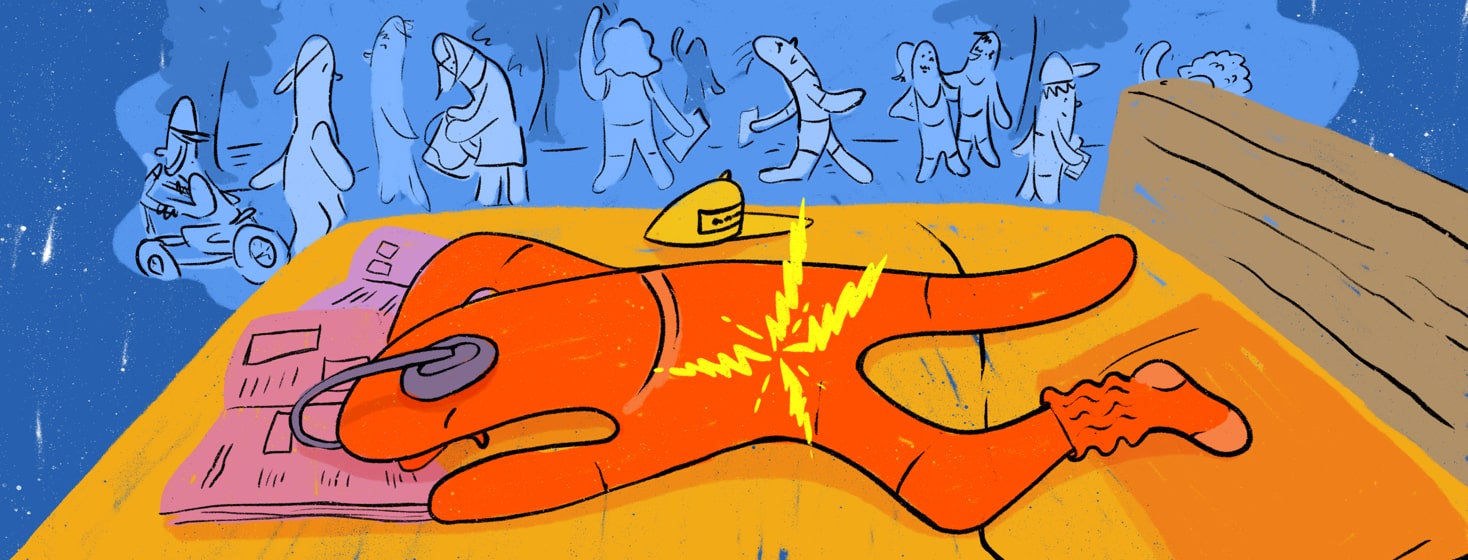Accepting and Understanding Sickle Cell
I first understood what it meant to have sickle cell when I had my first crisis at 19. It is definitely different growing up as someone living with sickle cell without a memory of a sickle cell crisis.
Learning about sickle cell growing up
As a child, I heard stories of how people living with sickle cell are always in pain and admitted to the hospital for days. It wasn't something I could relate to.
Feeling different
Throughout my childhood, I did not have any crises. Although, I didn't look like other kids. I was smaller with pale skin and yellow eyes. This made me feel different compared to other kids. It made me feel more like an outcast.
I was like a kid on the fence who believes he does not live with sickle cell because he hasn't had a crisis yet and doesn't look like others.
I didn't understand
It was a lot to deal with, trying to find myself. Having sickle cell was just a word. I didn't understand what it meant to live with sickle cell until my late teens, precisely when I was 19.
My first crisis
At 19, I had my first sickle cell crisis (vaso-occlusive crisis). That was the first time I heard the word vaso-occlusive crisis and also experienced it.
It was in my second year at the university. I was preparing for my second-semester examination. This was a day before the exam.
More than a mild pain
While I was preparing, I felt a mild backache. It wasn't new for me to feel backache. They came briefly and stopped after I took a rest.
As naive as I was, I thought it was just another mild back pain that would leave after few minutes, so I decided to take a nap. A few minutes later, I was crying and groaning in pain. The backache had grown into a stabbing pain all over my body. Finally, I was in the hospital receiving treatment, fighting for my life.
That was my experience with a vaso-occlusive crisis.
Accepting myself
That experience was more of emancipation and self-acceptance for me. It gave my life a new reality, one without self-denial.
That crisis made me understand not only the pain other warriors go through with vaso-occlusive crises, but also taught me that there is more to sickle cell than crises.
Different kinds of pain
There's the mild crisis that lasts hours or minutes. These ones can be treated at home with just rest or a mild pain killer.
Then there is the crisis that earns you weeks in the hospital. It is these ones that a lot of people like my younger self think when they hear sickle cell.
There are also complications that never announce before showing up. An example is avascular necrosis, which I have been dealing with since 2016.
Mental health impacts
All of these combined can also have an effect on your mental health which makes sickle cell disorder a complete package.
Let's break the myths around sickle cell
There is a need to let the world know that sickle cell is not just about vaso-occlusive crisis so that we can break the myth that everyone living with sickle cell is always in pain and live in the hospital.
This will not only help the community pass out information but also help warriors feel better about themselves. It will help warriors be okay with being different from other warriors.

Join the conversation